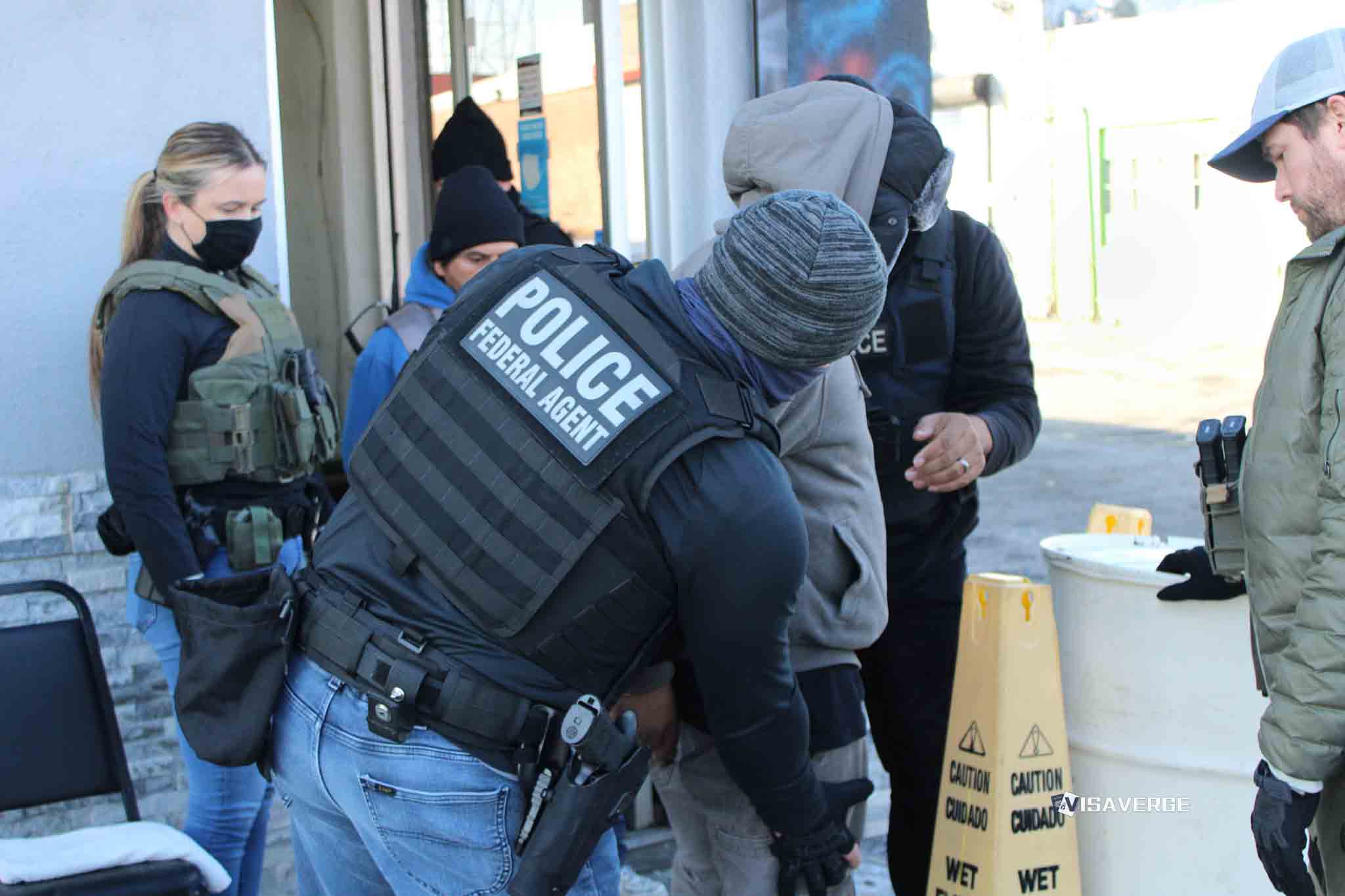(DALLAS) Immigration advocates in Texas are raising alarms after ICE detained Maher Tarabishi, a long-time Jordanian resident and the primary caregiver of his medically fragile U.S. citizen son, during a routine check-in in Dallas on October 28, 2025. Within days of the detention, his son Wael, who has Pompe disease, was hospitalized with blood sepsis and pneumonia, and spent days in intensive care calling out for his father.
Background: Supervision Order and caregiving role

For years, 52-year-old Maher had lived lawfully in the United States under a Supervision Order, granted because of Wael’s complex medical needs. The order allowed him to remain in the country even though he did not have permanent status, on the condition that he reported regularly to immigration officers.
- Family members and advocates say this arrangement had been stable since 2008.
- Maher had complied with every reporting requirement and did not miss appointments.
The October 28 detention
What was supposed to be another routine appointment at the Dallas immigration office collapsed into detention.
- Relatives say officers handcuffed him during the check-in.
- Maher reportedly told officers he was the only person trained to care for Wael at home, but ICE officers proceeded with detention.
- The family says no new criminal conduct or immigration violation was raised at that meeting.
ICE officers, according to people familiar with the case, labeled him a criminal and alleged he had been affiliated with the Palestine Liberation Organization (PLO), which they described as a terrorist group. Legal sources note the United States has not designated the PLO as a terrorist organization since 1987, raising questions about the legal basis for that allegation in 2025.
Wael’s medical condition and immediate impact
Wael is a U.S. citizen in his twenties living with Pompe disease, a rare, progressive muscle-wasting condition that:
- Weakens the heart and skeletal muscles
- Can affect breathing
- Leaves patients dependent on complex medical and caregiving support
Specific facts about Wael’s condition reported by family:
- He has 22 screws in his back
- He has one collapsed lung
- He cannot move his arms
- Machines assist with breathing and eating
Family members say Wael has told them that his father’s presence is the only reason he wants to keep living.
When ICE detained Maher, doctors say Wael’s health quickly declined. Already medically fragile, he developed blood sepsis (a life-threatening reaction to infection) and pneumonia, and spent days in an intensive care unit, struggling to breathe while repeatedly asking staff and relatives where his father was. Nurses and family members had to explain that immigration officers had taken him away.
Legal and policy context
This case is drawing attention because Maher’s situation differs from many recent immigration arrests:
- He was not in hiding.
- He did not miss appointments.
- He was under an existing Supervision Order that explicitly recognized his son’s medical needs and his role as caregiver.
There has been no official public explanation from U.S. Immigration and Customs Enforcement about what changed between earlier check-ins and the decision to detain him on October 28.
Federal policy does recognize that immigration enforcement affects families. On its website, U.S. Immigration and Customs Enforcement states that it considers “parental interests” during enforcement actions involving parents of minor U.S. citizen children.
Advocates in Texas argue that in practice, humanitarian factors are often set aside, especially under what they describe as a tougher approach in the region.
Broader trends and expert analysis
According to analysis by VisaVerge.com, similar cases show a growing tension between:
- Immigration enforcement priorities
- Humanitarian considerations for families with serious medical issues
Lawyers and advocates say decisions in delicate cases like this can mean the difference between life and death for U.S. citizen children who depend on a single caregiver.
Local context in Texas:
- Immigration enforcement has sharply increased in Texas.
- Local advocates report arrests in the state have more than doubled under the current administration.
- Dallas has emerged as a major hub of detentions.
- Legal service providers in North Texas say they see more people with long-time ties to the U.S. being picked up at check-ins that previously had been routine.
Medical consequences of caregiver disruption
Medical professionals familiar with Pompe disease explain that:
- Emotional stress and disruption in care can worsen symptoms quickly.
- When a patient depends heavily on one caregiver, that person’s sudden absence can lead to:
- Missed treatments
- Increased risk of infection
- Respiratory crises
Advocates argue the government should treat such cases as medical emergencies, not only as legal files.
Family status and current uncertainty
So far, there has been no clear communication from ICE about Maher’s current legal position.
- Family members and advocates say they have received no written notice that his Supervision Order was revoked.
- They say they have not been told that his permission to remain in the U.S. as Wael’s caregiver has changed.
- There is no timeline provided for removal proceedings or possible release.
Immigration lawyers warn of broader implications:
- If a person who has followed all the rules for over a decade can be detained without warning at a check-in, others with Supervision Orders might avoid future appointments out of fear.
- That could push more people into the shadows and make it harder for the government to keep regular contact.
Advocates’ position and community response
Advocates stress that the situation is especially stark because Wael is a disabled U.S. citizen who cannot care for himself. They argue:
- The government has a moral and practical responsibility to prevent harm to citizens, particularly those who are dependent on a single caregiver.
- Releasing Maher to continue his caregiving role would, in their view, not pose a public safety risk and would greatly reduce the risk to Wael’s life.
Community groups in Dallas have begun to organize support for the Tarabishi family by:
- Sharing Wael’s story
- Urging ICE to grant humanitarian release
- Calling for clearer national rules to protect caregivers of severely disabled citizens from sudden detention
They argue that without such safeguards, similar cases will continue as enforcement intensifies.
Current situation and stakes
For now, the Tarabishi family is caught between two systems:
- A medical system trying to keep Wael alive
- An immigration system that has removed the person he depends on most
Each day without a decision on Maher’s fate:
- Deepens the strain on Wael’s already fragile health
- Raises fresh questions about how U.S. immigration enforcement treats families in crisis
Key timeline (concise):
| Date | Event |
|---|---|
| 2008 | Supervision Order reportedly established to allow Maher to remain and care for Wael |
| October 28, 2025 | Maher detained during routine Dallas check-in |
| Days after Oct. 28, 2025 | Wael hospitalized with blood sepsis and pneumonia; spent days in ICU |
If you would like, I can:
– Draft a sample urgent letter or petition for humanitarian release,
– Summarize legal options for the family,
– Or format this story for distribution to local media or community groups.
Maher Tarabishi, a Jordanian long-term resident under a Supervision Order, was detained by ICE during a routine Dallas check-in on October 28, 2025. His son Wael, a U.S. citizen in his twenties with Pompe disease, deteriorated medically and was hospitalized with blood sepsis and pneumonia days later. Advocates stress Maher complied with all reporting requirements since 2008 and argue officials ignored humanitarian factors. Community groups demand Maher’s humanitarian release and clearer rules to protect caregivers of disabled citizens amid rising detentions in Texas.













